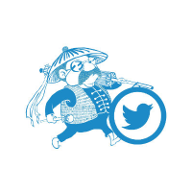









19 October 2017 by Christina Barker
I have had several Chinese and Taiwanese students over the years and I got to know some of them quite well, and I also learnt quite a bit from their dissertations, such as the history and administration of Taiwan, attitudes to conservation and to families, and the complex relations with mainland China. I picked up a few words and expressions of Mandarin, but never learnt the language. I came to realise that China and Chinese culture are large and diverse and attitudes are very nuanced and sometimes contradictory, and it is not possible to have simple views about them. I also had some knowledge of the influence of Chinese culture on English ideas in the eighteenth century from my earlier studies.

Certainly I grew up in very rural countryside in the 1940s, as I describe in my book The World is a Bundle of Hay. As we know, in the country, where there are not many people, it’s usual to speak to strangers or anyone you meet. At the same time, because village life can be claustrophobic and you have to live with any situation for a long time, we tend to be cautious and slow to make deep friendships or to socialise. I admired my grandfather a lot, and so did many people as he was always willing to go to a lot of trouble to help neighbours or strangers since he had seen a wider world through travel and the army. I got from him a strong sense of justice and hatred of unfairness and I feel this is a good starting point for sympathy. It wasn’t really until I started working with overseas students that I came to see their problems and often isolation, and frankly I felt these were not seen sympathetically by most of my colleagues, which was a sort of injustice. I couldn’t change my colleagues, but I could offer some companionship to my students; indeed that had been my brief to be “the students’ friend”.


We all went to church and Sunday School when I was young and of course hymns are poems really, some of them quite famous, so I was familiar with the syntax and rhythm of verse. And at school in those days we had to learn classic poems by heart and recite them together in class. But I don’t think I would have said that I loved poetry then. Later in life I came back to poetry in rather a strange way. A famous sailor-writer Tristan Jones would admit, I think, to having lived a rough life; and one day he found himself lying in a New York gutter, drunk. The outcome was that he had one leg amputated. But he had an instinct for a finer culture and his favourite book on long voyages was, surprisingly, The New Oxford Book of Verse. When I read this I thought I must get that book, which I immediately did, and I’ve been mining it ever since. I also value The Oxford Book of Eighteenth Century Verse for the more prosaic content of its poetry.

Su Yen always responded very positively to my comments and I never felt that there was a problem of communication, except for an occasional misunderstanding about an unfamiliar word, though I usually tried to anticipate these. I learned later though, as Su Yen explains in her book, that she was sometimes puzzled how to reconcile some western ideas with her own culture, but decided it was better not to argue about these at the time until she had a deeper understanding. Insofar as I was unaware of this, maybe I was the one failing to bridge the divide, although I did not know it then.

I had always thought that I would not be able to work with someone else to write a book, but in fact that aspect was quite easy. What was more difficult was that, no, it had not been planned as a book and we had to search for emails going back over some time and then modify, supplement and impose a structure and a narrative on them all. We spent much effort in arranging and rearranging material. I had published a couple of books before which were much more straightforward to write. A very big problem was getting copyright permission for some of the poems. While naturally I support the rights of writers, the actual system for obtaining copyright is in some organisations very tardy, unhelpful and expensive. Sometimes it is impossible to find who owns the copyright and with regret I had to omit or substitute a few poems and rewrite those sections.

Well, I have always thought that, reading between the lines, there is much more to Su Yen’s life story than she has told us so far. So maybe a DSY 2, although I also feel the adventure of setting up Snowflake Books against the odds, and the relationships of the personalities involved, may be worth telling one day. For myself. I have been pleasantly surprised to find how naturally ‘at home’ I can feel with people of a very different culture, and this has led me to want to introduce westerners to the best of the traditional values of China. However, I realise that this attitude, from the security of my own culture, may not seem so easy for people conscious of their differences in an alien country. I have also become aware of the importance of symbolism in daily discourse in Chinese culture, and particularly of the significance of the popular temple culture in Taiwan; while I respect these ideas they are still largely unknown territory for me.


First I would say what a wonderful thing human communication is and that we take it so easily for granted. My Chinese students sometimes wrote what seemed like nonsense, but when I teased out the meaning and expressed it in plain English they were so delighted to be understood: “Yes that’s what I want to say!” Unfortunately I cannot read Chinese, but translation as a joint effort is very rewarding. I can usually spot incongruities in events and vocabulary and we resolve these through discussion and research. Another challenge is the nature of Chinese stories in terms of misleading irrelevancies, loose plot structure and rather lame endings, so sometimes I partly restructure the stories to suit our western audience, but we work hard to keep the essential meanings and values. As David Bellos argues, a good translation is a new creation. We hope so.


I see Su Yen and Lihui work so hard; above all I would like Snowflake Books to prosper so that life can be much less stressful for them both.

